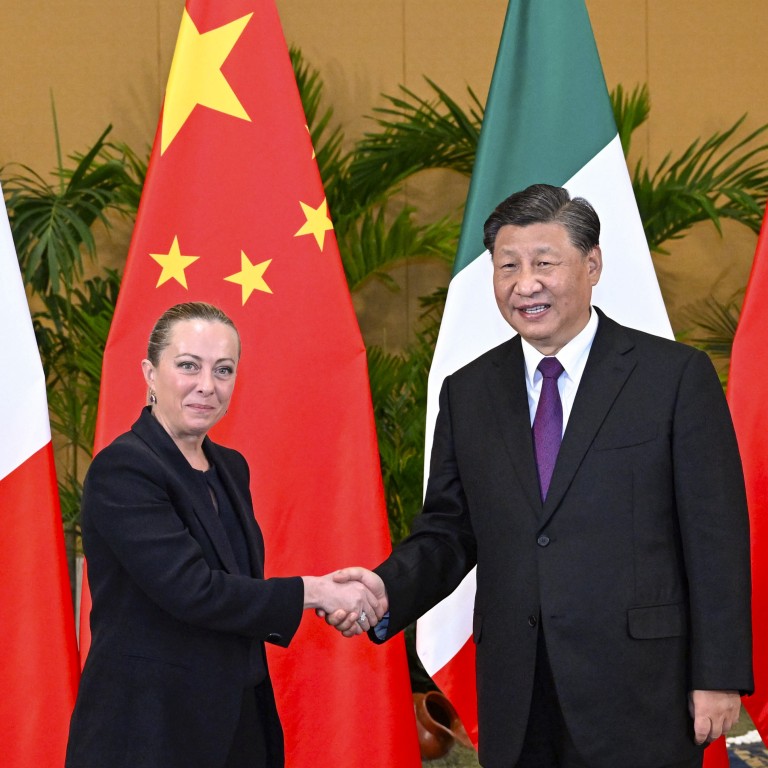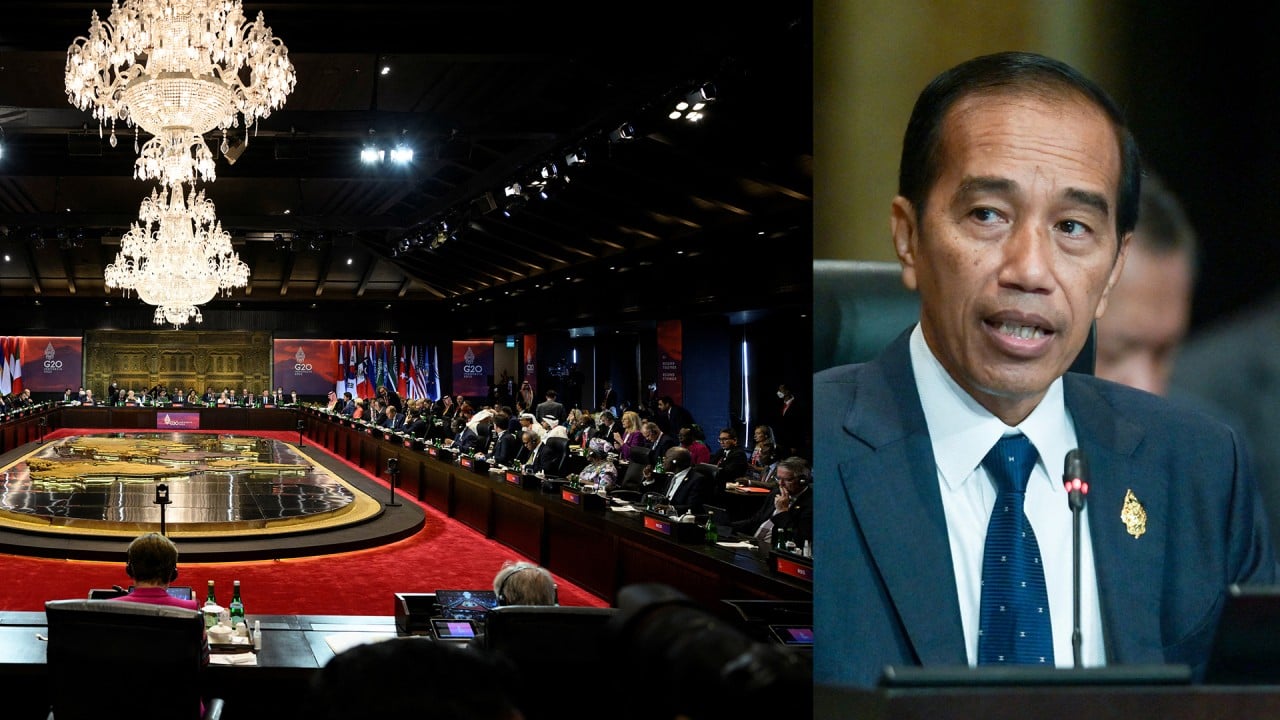
China urges Italy to play constructive role in relations with Europe
- Foreign Minister Wang Yi tells his Italian counterpart Antonio Tajani that Beijing does not want ‘third parties’ to get involved
- Last week Chinese President Xi Jinping invited Italy’s Prime Minister Georgia Meloni to visit the country after extending a similar offer to other EU leaders
China does not want any “third parties” to be involved in its relationship with Europe, Foreign Minister Wang Yi has told his Italian counterpart as both sides agreed to push forward a partnership on trade and technology.
“China always regards the European Union as a comprehensive strategic partner, supports the EU’s strategic autonomy, and wants to see a stable and prosperous Europe. China’s policy towards Europe remains stable and consistent, regardless of changes in the international situation,” Wang said, according to the Chinese foreign ministry.
“The China-Europe relationship is not directed at a third party, nor should it be subjected to a third party”.
Wang also called for stronger economic and technological cooperation, and the next joint meeting of the China-Italy government committee to be convened as soon as possible. It last met in 2020 to mark the 50th anniversary of the establishment of diplomatic relations.
In an Italian foreign ministry statement, Tajani said he hoped for “rapid resumption of all channels of dialogue” between China and the EU, including that on human rights.
Italy’s far-right leader Meloni visits EU: ‘We are not Martians’
He reaffirmed to Wang his commitment to relaunch a bilateral dialogue and strengthen economic relations in crucial sectors.
The phone call between Wang and Tejani came days after Xi and Meloni met on the sidelines of the Group of 20 summit last week in Indonesia, where the two discussed how to promote cooperation between the EU and China.
Meloni also accepted an invitation from Xi to visit China. The hard right-winger is known for her harsh stance toward China, frequently criticising Beijing’s policies toward Taiwan and Xinjiang.
She also called Italy’s signing up to China’s Belt and Road Initiative (BRI) “a big mistake”.
Xi also met other EU leaders during the G20 summit last week, including French President Emmanuel Macron and Spanish Prime Minister Pedro Sanchez.
China is facing greater scrutiny from the West over human rights issues and its investments in critical infrastructure overseas have sparked national security concerns.
Italy’s prospective PM Meloni poised to shake up ties with China
Xi has expressed his opposition to the use of nuclear weapons and called for a resolution to the crisis, also signing a G20 declaration that noted that most countries strongly opposed the war but saying there were other views.
The EU has often closely aligned itself with the United States in criticising China, including its intensified military activities in the Taiwan Strait following the visit of US House Speaker Nancy Pelosi in August and policies in Xinjiang.
Washington has also been pushing Europe to adopt the same export controls it has used to target China’s hi-tech sector.

 - Kawala Xie.jpg?itok=NogZcyZ-&v=1661304068)
